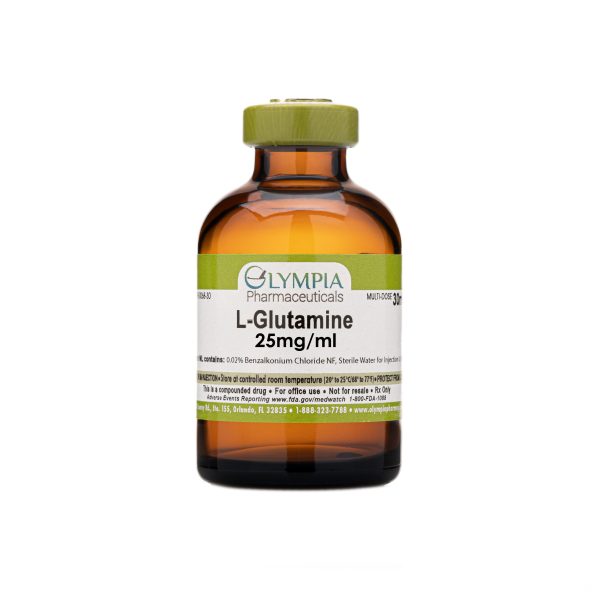Overview
Glutamine is a vital amino acid that serves as a building block for proteins in the body. Glutamine is the most abundant free amino acid in the body, produced in the muscles and distributed through the bloodstream. Maintaining adequate glutamine levels is crucial for a healthy immune system and supporting the body’s healing abilities. Glutamine provides the necessary nitrogen and carbon for various cellular processes, including the production of amino acids and glucose. Consequently, glutamine plays a vital role in fueling the body’s natural healing processes and promoting healthy organ function. While the body can usually synthesize enough glutamine, in times of stress like traumatic injury or illness, the demand for glutamine exceeds what the muscles can produce. In such cases, additional glutamine can be obtained from the diet, found in protein-rich sources like beef, chicken, fish, dairy products, eggs, beans, beets, cabbage, spinach, carrots, parsley, vegetable juices, wheat, papaya, Brussels sprouts, celery, kale and fermented foods like miso.
What Is Glutamine Prescribed For?
Glutamine is commonly prescribed to alleviate side effects of chemotherapy, such as diarrhea, mouth pain/swelling, neuropathy, and muscle/joint pain. It is also used for digestive conditions like Crohn’s disease, ulcerative colitis, and ulcers. Furthermore, glutamine is employed to enhance exercise performance, manage sickle cell anemia, and support alcohol withdrawal.
Benefits of Glutamine Injections
Glutamine injections have shown potential benefits in several areas. They may help muscles recover faster after intense workouts and reduce the recovery time for wounds and burns. L-glutamine has also demonstrated potential for improving symptoms of conditions like irritable bowel syndrome (IBS), leaky gut and ulcers. Additionally, as a precursor to glutamate, glutamine could have positive effects on brain-related issues such as Reye’s Syndrome, epilepsy, anxiety, depression and addiction. Additionally, some studies suggest that l-glutamine may aid in weight loss by supporting metabolism and reducing muscle wasting.
L-Glutamine Dosage, Concentration, Route of Administration
Dosage: Seek advice from a licensed physician, medical director, or other healthcare provider
Concentration: 30mg/ml
Route of Administration: IV/IM
Precautions/Side Effects
Glutamine is generally consumed as part of the regular diet, but caution should be exercised when using larger amounts as a medication during pregnancy or while breastfeeding. Limited information is available regarding its safety in such cases. Glutamine may increase the risk of brain function issues in individuals with advanced liver disease or trigger mania or hypomania in those with bipolar disorder. It’s important to consult a healthcare provider if you have seizures, as glutamine could potentially increase the likelihood of seizures. Additionally, glutamine may interact with certain medications, so it’s crucial to discuss its use with a healthcare professional.
Some common side effects include:
- – Nausea
- – Bloating
- – Dizziness
- – Heartburn
- – Stomach pain
Storage
Store under controlled refrigeration. Protect from light.
Ready to Learn More About Glutamine? Contact Olympia Pharmacy Today!


